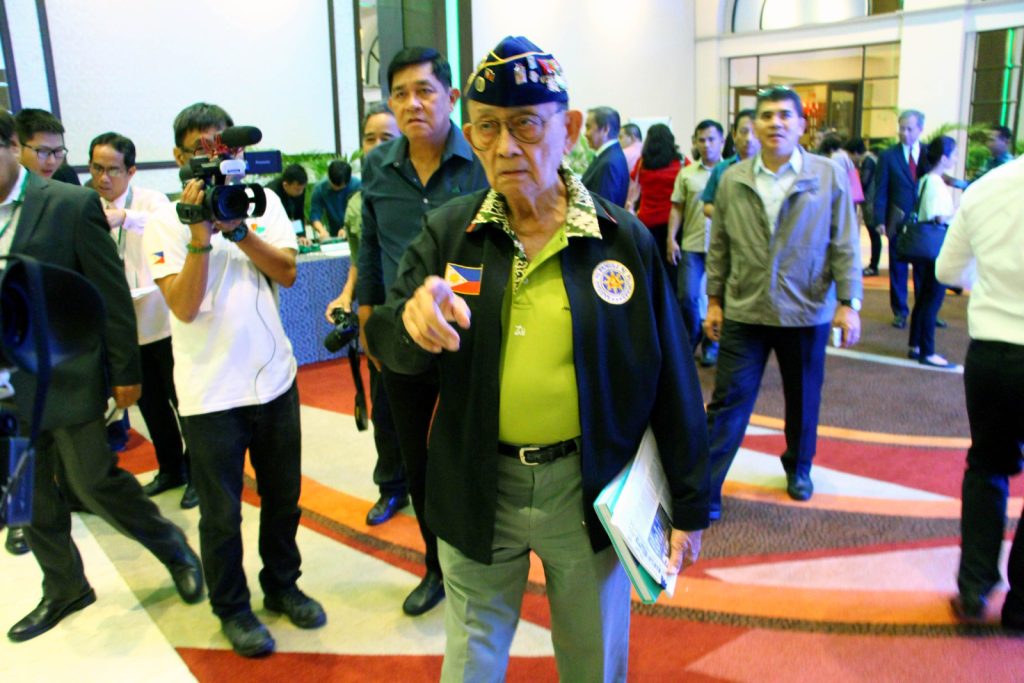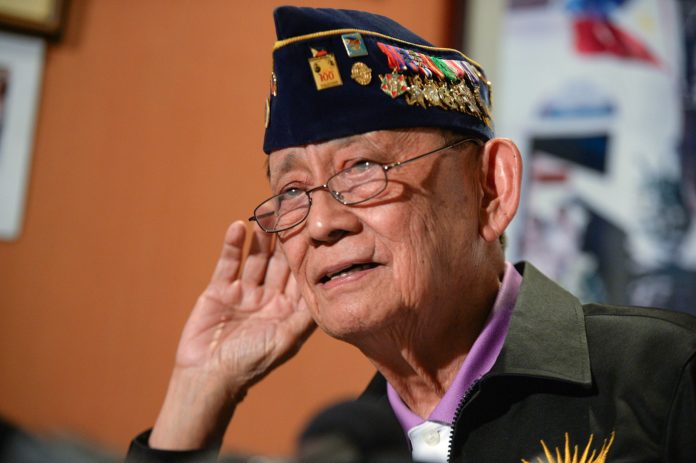Generals Manuel Yan and Ed Ermita, Senator Orly Mercado and Tawi Tawi Governor Nur Jaafar stared at the name tags on my and Fred Clemente’s chests: “MNLF Observer.” The four were panelists and advisers of the Philippine government’s peace negotiations in Jakarta, August 1996. Clemente was Education undersecretary, and I was publisher of “Isyu,” an all-opinion daily.
So why were we on the side of the separatist Moro National Liberation Front, they must have wondered.
Days earlier in Manila, President Fidel V. Ramos had called Clemente and me to Malacañang. He wished to conclude peace talks with MNLF Chairman Nur Misuari and asked us to convince him to return from walkout of heated sessions. Why us, Clemente queried. Ramos, former Armed Forces deputy for intelligence (J2) with elephant’s memory, said he knew Clemente and Misuari to be close friends. They had been dormitory bunkmates and charter members of the radical Kabataang Makabayan in UP Diliman in 1964. As for me, the president offered scoops of happenings behind the scenes. “Tell Misuari I have only one message for him: You are a Filipino with every right to come home.”
When we whispered that to Misuari in Jakarta, he smiled and nodded. In turn he told MNLF panelist, Protestant Reveverend Absalum Cerveza, to thresh out with the other side’s Gen. Alex Aguirre the contentious issues over which they had just wrangled. Misuari understood the message. FVR sincerely wanted everyone to return to their families. Three days later, August 19, the two met in Malabang, Lanao, the first time in ten years. After a warm embrace, they jointly declared the war over. Formalities were signed in Manila on September 2. Foreign and local investments poured in to Mindanao thereafter. UNESCO awarded the two men the Felix Houphouet-Boigny Peace Prize.
As a soldier, FVR was a peacemaker. More than that, he was an inspirer. Believing in the Filipino, he capped all meetings and speeches with the exhortation, “Kaya natin ito!” He had helped bring down his second cousin’s dictatorship and was determined to make democratic restoration work. He repulsed eight coups d’état against President Cory Aquino, 1986-1992, and nipped six others before armed outbreak.
FVR built consensus including winning over critics. Regularly he convened the Legislative-Executive Development Advisory Council to iron out details on major congressional bills and forestall any need for presidential veto. One of those was the repeal of the Anti-Subversion Law that criminalized mere espousing of communism even the nonviolent type. That encouraged ex-dissidents to join “parliamentary struggle” in Congress and NGOs. FVR garnered a mere 23.6-percent plurality in the 1992 presidential balloting. Yet in a survey six months later, 62 percent swore they voted for him; even Cardinal Jaime Sin who had campaigned against a Protestant president, admitted choosing him.
One time, FVR alit from the presidential limo to chat up pickets outside his event at Manila’s Cultural Center. As the militants crowded around, one accidentally scraped his forehead with a placard. The close-in security noticed the blood drip and moved. FVR halted the dispersal, wiped his wound, accepted the youth’s profuse apologies and continued conversing. They must have all gone home wiser that day.

Always beside FVR in his vehicle was an old milk box full of documents. A cardboard in the middle separated the unread from those he had studied and scribbled marginal notes with red pen. Privileged thrice to ride with him when he was Armed Forces chief then defense secretary, he discussed some of those papers with me. When FVR became president, 1992-1998, a sturdier deeper box replaced the old one. He let me read some of the items he knew interested me: education, agricultural modernization, regional development, counterinsurgency, foreign relations. Waking up at 4:30 a.m. and hitting the sack at midnight, he digested all the contents between endless meetings.
FVR took media criticism in stride. He wrote reactions to newspaper columns, again in red ink, and faxed these to the writers.
For FVR newsmen were not enemies but partners. Before US President Dubya Bush embedded American journalists with military forces in the 2003 Iraq invasion, FVR already immersed Filipino counterparts in his work. Prior to involving me in the Moro peace talks, he had then presidential chief legal counsel Tony Carpio brief business editor Tony Lopez and me about a major campaign.
Singapore’s Lee Kuan Yew had quoted Lopez’s editorial that “98 percent of Filipinos are waiting to have a telephone and 2 percent are waiting for a dial tone.” The breakup of the 40-year-long PLDT monopoly ensued. Dismantling of monopolies in airlines, shipping and ports followed.
If we now each have mobiles, credit it to FVR. As well, our free choices of airlines, ferries, flight and sail times, and destinations.
There are more stories to tell about FVR. How he “terrorized” me when we first met about a story I had written when he was Constabulary chief. Two helicopter crash landings while covering him. His being the life of the party, even in wakes of departed friends. His bringing the house down at my book launch in 2012. His locking of arms with audiences and doing his signature Edsa revolt jump. His occasional rounds of Carlos Primero brandy with columnists despite having only one kidney (he lost the other while a West Point cadet). His worldwide accolades. His 90th joint birthday bash with wife Ming Martinez-Ramos. His remembering the reason for my daughter’s nickname.
For now, we all grieve the passing of the most hardworking, visionary post-Edsa revolt president we ever had. Deepest condolences to his family.
Jarius Bondoc is an award-winning Filipino journalist and author based in Manila. He writes opinion pieces for The Philippine Star and Pilipino Star Ngayon and hosts a radio program on DWIZ 882 every Saturday. Catch Sapol radio show, Saturdays, 8 to 10 a.m., DWIZ (882-AM).
The views expressed in this article are the opinions of the author and do not necessarily reflect the editorial stance of LiCAS.news.









